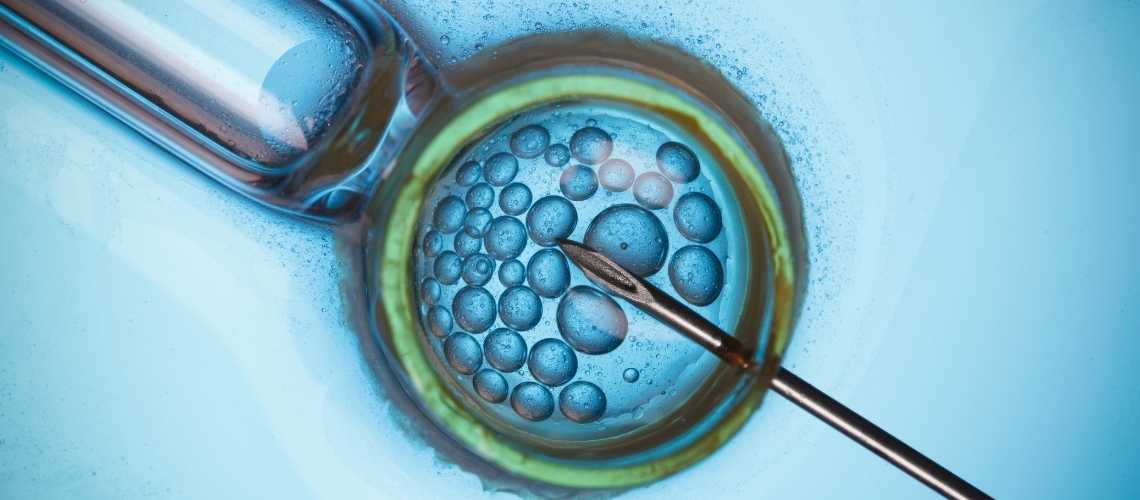A process called in vitro fertilization (IVF), a type of assisted reproductive technology (ART), is the fertilization of sperm and eggs outside the human body. IVF is a challenging procedure that includes manually mixing sperm and eggs in a lab for fertilization after removing the eggs from the ovaries. The fertilized egg, which is now known as an embryo, is placed into the uterus a few days after fertilization. When the embryo embeds itself in the uterine wall, pregnancy results.
Why is IVF carried out?
IVF is chosen by people for a variety of reasons, for example; when one couple has a pre-existing medical condition or infertility problems. Some people will try IVF if other fertility treatments haven’t worked for them or if they’re past the prime of pregnancy.
IVF is a possibility if you or your partner has following condition:
- Fallopian tubes that are blocked or damaged
- Endometriosis
- Low sperm count or additional sperm defects
- Other ovarian disorders, like polycystic ovary syndrome (PCOS)
- Uterine fibroids
- The possibility of passing on a disease or genetic condition
- Unexplained infertility
What is BFN in IVF?
There are abbreviations and terms you may come across on pregnancy forums. One of them is BFN.
BFN, which stands for “Big Fat Negative,” denotes a failure. Contrarily, the abbreviation BFP stands for Big Fat Positive and implies a positive pregnancy test result. (1)
BFN and BFP are frequently used in relation to pregnancy tests on fertility forums. It’s not uncommon for women to take a pregnancy test and get opposite findings on the same day. On forums, you can come across phrases like “tested BFP this morning but BFN in the evening.” (2)
When is the right time for a pregnancy test to be reliable?
You may suspect that you are pregnant if you have more pregnancy symptoms like delayed menstruation and nausea. However, to be absolutely confident that embryonic development is proceeding normally, you should take a pregnancy test and, if it comes back positive, have an abdominal ultrasound.
It is preferable to wait at least 15 days prior to conception in order for a pregnancy test (home urine or blood tests) to receive a reliable result. However, it’s typical for a woman to be uncertain as to exactly when she might become pregnant when trying for a baby and having frequent sex.
hCG hormone levels gradually rise during the first trimester of pregnancy. Therefore, it is advised to wait to take a pregnancy test for around two weeks after conception. However, if the woman takes the test first, the outcome could not be accurate. (3)
Can stress during a two-week hold have an impact on IVF’s success?
Corticosteroids, sometimes known as stress hormones, have been identified in significant quantities in the saliva of women receiving reproductive treatment. The findings demonstrate that stress has a direct impact on the likelihood of conception.
It must be remembered, though, that every woman finds the treatment and even more so the two-week waiting time to be extremely stressful. Therefore, it has long been established that stress does not affect how well a treatment works.
In essence, it has an impact on the amount of stress placed on the therapy, but the doctor has already evaluated this impact during the consultation. For this reason, it can be said that waiting has no effect on the success rate of IVF treatment. (4)
What are some next steps after a BFN in IVF?
Following a BFN (Big Fat Negative) in IVF, it marks a challenging moment yet it is not the conclusion of one’s fertility journey. Initially, scheduling a follow-up appointment is crucial. During this meeting, the doctor will evaluate the IVF cycle and identify potential reasons behind the negative outcome. Furthermore, seeking emotional support is essential. The process is strenuous, and sharing feelings with a partner, family, or therapist can provide relief. Additionally, support groups offer a sense of community and understanding.
Moreover, reviewing available options is a subsequent step. The doctor may propose:
- Repeating the IVF cycle with protocol adjustments.
- Considering alternative fertility treatments.
- Exploring adoption as potential path forward.
Each option depends on the individual’s circumstances and the availability of remaining embryos. Importantly, experiencing a BFN is merely one aspect of the journey. The doctor plays a key role in crafting a strategy aimed at enhancing the likelihood of success in future cycles. With professional guidance and emotional support, individuals can navigate the complexities of IVF with informed decisions and renewed hope.
Source:
3,4-Rodrigo, A., & Ph, J. A. D. G. M. When should you take a pregnancy test for it to be reliable?.





